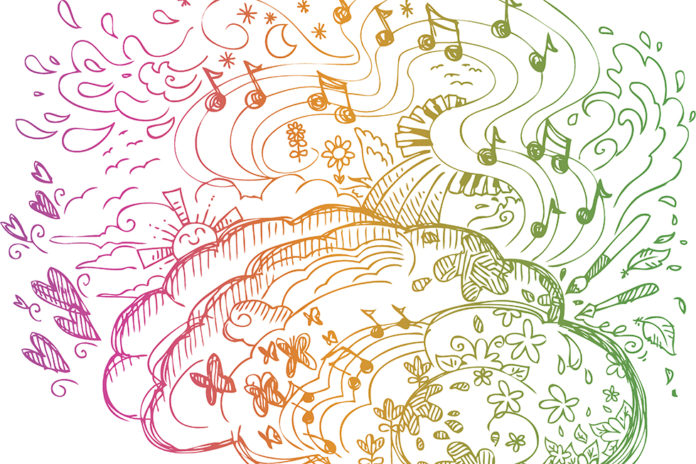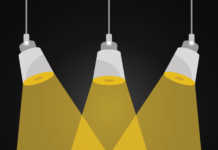
Do you know someone who lives with a seizure disorder? Listening to music might be a health benefit.
BY PHILL FELTHAM
Where would the world be without music? Ed Sheeran can set the mood for a romantic evening while David Guetta sets the beat for an intense workout, but did you know that listening to music can actually be beneficial for your heath?
Studies have already proven that listening to music has many health benefits. For instance, it can improve communication skills and reduce sensations of pain (as long as the music you are listening to isn’t painful).
Music can also take a bite of depression, can encourage you to exercise, as well as can help you to relax and sleep. Moreover, recent research has discovered that music can help prevent seizures as well.
GOOD FOR SEIZURES
Researchers from Ohio State University’s Wexner Medical Center recently discovered that people with epilepsy appear to react differently to music than those who do not have the disorder. This finding could possibly lead to new therapies that can help to prevent seizures.
Christine Charyton, PhD, adjunct assistant professor and visiting assistant professor of neurology at the medical center says that music may be used as an intervention to help prevent seizures.
Most people with epilepsy (80 per cent) have temporal lobe epilepsy, where partial seizures occur in the temporal lobe of the brain. Music is processed in this same brain region—the temporal lobe. Partial seizures can be observed as a warning or a sense of awareness (aura) that a full seizure or some other event might occur, loss of awareness without consciousness (staring out into space), or where the person is doing repetitive acts without cause (for example, distorted speech or aimless walking).
“We compared music and the brain to people with and without epilepsy,” says Charyton. “We collected data from patients over a two-year period using specific jazz or classical music both preceded and followed by silence.”
Patients listened to 10 minutes of silence, followed by 10 minutes of music, followed by 10 minutes of music, followed by 10 minutes of silence. Researchers recorded the patients’ brainwave patterns during this process with electroencephalogram.
Classical composer Wolfgang Amadeus Mozart and jazz musician John Coltrane were the artists of choice. “We didn’t focus on other genres of music since we based our study on previous research,” says Charyton. “But, we did find that patients responded positively when listening to both pieces of music.”
Researchers randomized the music where some patients listened to Coltrane first while others listened to Mozart first. Consequently, researchers discovered levels of brain activity were significantly higher in patients listening to music.
“We were surprised by the findings,” says Charyton. “We hypothesized that music may be processed in the brain differently. However, we did not know if this would be the same or different for people with epilepsy.”
MUSIC CAN CAUSE SEIZURES?
Epilepsy Ontario, a not-for-profit organization that provides public awareness and education for epilepsy in the province, provides information that there are very rare cases, but they do exist, that music can cause seizures. This form of reflexive epilepsy, known as musicogenic seizures, is triggered by music or loud sounds. Furthermore, people with a low threshold of tolerance to specific frequencies of pitch can be prone to this type of seizures.
“If you are sensitive to noise and music, consult your neurologist before listening to music,” recommends Charyton. “In our research study, no one had a seizure from the music we selected. Musicogenic seizures are rare.”
MUSIC THERAPY IN ACTION
Music therapy won’t replace traditional treatment, but can be used as one complementary intervention technique that can help prevent seizures in people with epilepsy.
Charyton provides a few suggestions on how to put music therapy into action.
1 | WATCH FOR SYMPTOMS
“If you are aware that you are having symptoms, consult a neurologist for an evaluation. If you know you have epilepsy, such as repeated auras or blank spells, try to relax and listen to music regularly to prevent a seizure in addition to seeing your neurologist,” says Charyton. “The brain synchronizes with the music instead of itself, to prevent a seizure from occurring. If the brain synchronizes with itself, a seizure may be likely to occur. The music can act as a stimulus to change this undesirable synchronization and instead synchronize with the music, thus preventing a seizure from occurring.”
2 | MANAGE STRESS
“Research shows that stress is a major cause of seizures,” says Charyton. “Our research shows that music changes the synchronization pattern, thus decreasing the likelihood of a seizure. If you find yourself in experiencing stress, you may want to consider consulting a psychologist and listening to music.”
3 | GET SLEEP
“Sleep is beneficial to reduce the risk of seizures,” says Charyton. “Music can help you relax. Reducing stress can help you sleep. Listening to music can affect brainwave patterns that will synchronize with the music, which can also help reduce risk of seizures.” VM











